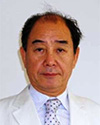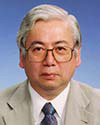製造業経営の要諦 ― ものづくり新論の体系化と
その有効性(パート IV)
Keys to manufacturing management:
Building and validating new manufacturing theories
(Part IV)
特別セッション
天坂格郎 (青山学院大学, 名誉教授)
Kakuro Amasaka (Aoyama Gakuin University, Professor Emeritus)
天坂格郎 (青山学院大学, 名誉教授)
Kakuro Amasaka (Aoyama Gakuin University, Professor Emeritus)
要旨:
急速に変化する経営技術環境下で、日本製造業の命題は世界市場から淘汰されないよう、顧客価値を高める最新モデルの高信頼性商品を他社に先駆けて提供することであり、積極的にチャレンジしなければならない。昨今の日本先進企業の度重なる大規模なリコール問題にみるように、開発設計を中心した信頼性技術問題は、科学的品質経営の要諦をなすグローバル品質保証技術不足への警鐘である。
本セッションのねらいは、JOMSA 設立の基底にあるグローバルな視点での“製造業経営の要諦の体系化”の必要性を捉える。21 世紀のものづくりのフロントランナーとして貢献できるよう、日本発の「ものづくり新論」というべき統合的な理論構築にかかわる学術の確立への布石であり、学会諸兄らの議論の場となれば幸いである。
JOMSA2015(特別セッション,学習院大学)、JOMSA2016(特別セッション(パートII),神戸大学)、さらにJOMSA2015(特別セッション(パートIV),首都大学東京)の議論を踏まえ、今回の特別セッションでは、“ものづくりとリスクマネジメント”に焦点をあてる。このセッションから、ものづくりに関わる要素技術の学際的研究、グローバルな視点でのオペレーションに関わる産学の連携による研究・教育と実践に関連する情報交換を図る。
Abstract:
The environment surrounding management technology is rapidly changing. For the Japanese manufacturing industry to survive in the world market, it will be necessary to boldly take up the challenge to lead other companies in offering the latest highlyreliable products that boost customer value. As evidenced by the repeated widespread recalls that have plagued leading Japanese companies in recent years, problems with reliability (particularly in the design and development process) are red flags pointing to a lack of the global quality assurance technologies that are the key to scientific quality management.
The purpose of this session is to underline the importance of systematizing the keys to manufacturing management from a global perspective―one of the underlying principles behind the establishment of JOMSA―as we lay the academic and scientific foundations for the building of a comprehensive theory that can rightly be called “a new theory of monozukuri” originating from Japan. It is hoped that this will allow us to make a solid contribution to the industry as a frontrunner in twenty-first century manufacturing.
Based on the discussion at the JOMSA2015 (Special Session, Gakushuin University), JOMSA2016 (Special Session (Part II), Kobe University) and JOMSA2017 (Special Session (Part III), Tokyo Metropolitan University), the focus of JOMSA Special Session (Part IV) is “Manufacturing and Risk Management.”
In adopting this special session, we are aiming to exchange knowledge and information on research, education, and practical application by having industry and academia work together in conducting academic research on essential monozukurirelated technologies, as well as enabling operation from the global perspective.
急速に変化する経営技術環境下で、日本製造業の命題は世界市場から淘汰されないよう、顧客価値を高める最新モデルの高信頼性商品を他社に先駆けて提供することであり、積極的にチャレンジしなければならない。昨今の日本先進企業の度重なる大規模なリコール問題にみるように、開発設計を中心した信頼性技術問題は、科学的品質経営の要諦をなすグローバル品質保証技術不足への警鐘である。
本セッションのねらいは、JOMSA 設立の基底にあるグローバルな視点での“製造業経営の要諦の体系化”の必要性を捉える。21 世紀のものづくりのフロントランナーとして貢献できるよう、日本発の「ものづくり新論」というべき統合的な理論構築にかかわる学術の確立への布石であり、学会諸兄らの議論の場となれば幸いである。
JOMSA2015(特別セッション,学習院大学)、JOMSA2016(特別セッション(パートII),神戸大学)、さらにJOMSA2015(特別セッション(パートIV),首都大学東京)の議論を踏まえ、今回の特別セッションでは、“ものづくりとリスクマネジメント”に焦点をあてる。このセッションから、ものづくりに関わる要素技術の学際的研究、グローバルな視点でのオペレーションに関わる産学の連携による研究・教育と実践に関連する情報交換を図る。
Abstract:
The environment surrounding management technology is rapidly changing. For the Japanese manufacturing industry to survive in the world market, it will be necessary to boldly take up the challenge to lead other companies in offering the latest highlyreliable products that boost customer value. As evidenced by the repeated widespread recalls that have plagued leading Japanese companies in recent years, problems with reliability (particularly in the design and development process) are red flags pointing to a lack of the global quality assurance technologies that are the key to scientific quality management.
The purpose of this session is to underline the importance of systematizing the keys to manufacturing management from a global perspective―one of the underlying principles behind the establishment of JOMSA―as we lay the academic and scientific foundations for the building of a comprehensive theory that can rightly be called “a new theory of monozukuri” originating from Japan. It is hoped that this will allow us to make a solid contribution to the industry as a frontrunner in twenty-first century manufacturing.
Based on the discussion at the JOMSA2015 (Special Session, Gakushuin University), JOMSA2016 (Special Session (Part II), Kobe University) and JOMSA2017 (Special Session (Part III), Tokyo Metropolitan University), the focus of JOMSA Special Session (Part IV) is “Manufacturing and Risk Management.”
In adopting this special session, we are aiming to exchange knowledge and information on research, education, and practical application by having industry and academia work together in conducting academic research on essential monozukurirelated technologies, as well as enabling operation from the global perspective.
JOMSA特別セッション
JOMSA Special Session
演題:「ものづくりとリスクマネジメント」
Title: Manufacturing and Risk Management
司会:天坂格郎 (青山学院大学, 名誉教授)
Chair:Kakuro Amasaka (Aoyama Gakuin University, Professor Emeritus and Doctor)
発表 1:「製造業経営とリスクマネジメント」
Presentation 1:“Manufacturing management and risk management”
畠中伸敏 (東京情報大学 教授)
Nobutoshi Hatanaka (Tokyo University of Information Sciences, Professor and Doctor)
発表 2:「環境貢献と事業の両立」
Presentation 2:“Compatibility with environment contribution and business”
岡田 慎也(ダイキン工業㈱ 顧問: 前 常務執行役員)
Shinya Okada (Daikin Industries Ltd. Advisor and Former Managing Executive Officer)
発表 3:「国内/海外生産工場におけるお客様目線での品質担保の再構築」
Presentation 3:“Restructuring of the quality control method for the domestic/overseas
production factory with a customer view point”
末次 淳 一(富士ゼロックス㈱ マネージャー:前 部長)
Junichi Suetsugu (Fuji Xerox Co., Ltd. Manager and Former General Manager)
発表 4:「グローバル事業におけるQCDマネジメント」
Presentation 4:“QCD management in the global business”
花﨑 雅彦(住友理工㈱, 常務執行役員)
Masahiko Hanazaki (Sumitomo Riko Co. Ltd. Executive Officer)
発表 5:「AI 技術による人事リソースマネジメント変革の可能性」
Presentation 5:“ Possibility of the personnel resource management reform by the AI technology”
南 公男 (パナソニック(株) 採用部門アナリティクス担当:前R&D 課長)
Kimio MINAMI (Panasonic Corp. Manager: Former R&D Manager)
Chair:Kakuro Amasaka (Aoyama Gakuin University, Professor Emeritus and Doctor)
発表 1:「製造業経営とリスクマネジメント」
Presentation 1:“Manufacturing management and risk management”
畠中伸敏 (東京情報大学 教授)
Nobutoshi Hatanaka (Tokyo University of Information Sciences, Professor and Doctor)
発表 2:「環境貢献と事業の両立」
Presentation 2:“Compatibility with environment contribution and business”
岡田 慎也(ダイキン工業㈱ 顧問: 前 常務執行役員)
Shinya Okada (Daikin Industries Ltd. Advisor and Former Managing Executive Officer)
発表 3:「国内/海外生産工場におけるお客様目線での品質担保の再構築」
Presentation 3:“Restructuring of the quality control method for the domestic/overseas
production factory with a customer view point”
末次 淳 一(富士ゼロックス㈱ マネージャー:前 部長)
Junichi Suetsugu (Fuji Xerox Co., Ltd. Manager and Former General Manager)
発表 4:「グローバル事業におけるQCDマネジメント」
Presentation 4:“QCD management in the global business”
花﨑 雅彦(住友理工㈱, 常務執行役員)
Masahiko Hanazaki (Sumitomo Riko Co. Ltd. Executive Officer)
発表 5:「AI 技術による人事リソースマネジメント変革の可能性」
Presentation 5:“ Possibility of the personnel resource management reform by the AI technology”
南 公男 (パナソニック(株) 採用部門アナリティクス担当:前R&D 課長)
Kimio MINAMI (Panasonic Corp. Manager: Former R&D Manager)
 |
 |
 |
 |
 |
 |
| 天坂 格郎 Kakuro Amasaka |
畠中 伸敏 Nobutoshi Hatanaka |
岡田 慎也 Shinya Okada |
末次 淳一 Junichi Suetsugu |
花﨑 雅彦 Masahiko Hanazaki |
南 公男 Kimio Minami |
要旨:
JOMSA2015 の特別セッション(1)では、超短期開発・生産プロセスの変革に視座し「開発・生産の高品質保証―製品設計と未然防止」に焦点をあてたJOMSA2016 の特別セッ ション(パート2)では、“最適化開発・製品設計”と“最適化生産・サービス”に視座し、ものづくりのドライビングフォースである「開発・製品設計・生産・サービスの高品質保証」に焦点をあてた。JOMSA2017 の特別セッション(パート3)では, 日本的生産を代表する“トヨタ生産方式とSCM、内外への拡がり”に焦点をあてた。
最近のリコール問題を注視すると、技術開発・製品設計評価,そして生産・検査に起因する信頼性問題が急増している。単なる個別技術問題の解決にとどまらず、開発・製品設計・生産・サービスに至るビジネスプロセスの変革につながるコア技術の創出とそれらを知的にリンケージさせる、新たな経営技術モテルの確立と体系的運用が求められている。
本特別セッションでは、“製造業経営の要諦―ものづくり新論の体系化とその有効性”に視座し、「ものづくりとリスクマネジメント」に焦点をあてる。グローバルなものづくりの観点から、発表1では「製造業経営とリスクマネジメント」を、発表2では「環境貢献と事業の両立」、発表3では「国内/海外生産工場におけるお客様目線での品質担保の再構築」、発表4では「グローバル事業におけるQCDマネジメント」、発表5では「AI 技術による人事リソースマネジメント変革の可能性」について焦点をあてる。
Abstract:
The focus of Special Session (Part 1) (JOMSA2015) was optimized product design and optimized production management technologies, namely, assuring high quality in development and production through product design and fault prevention. Next, the focus of Special Session (Part 2) (JOMSA2016) was the driving force behind “Monozukuri” manufacturing practices; namely, assuring high quality in development / product design, production and service. Furthermore, the focus of Special Session (Part 3) (JOMSA2017) was the “Toyota: production system, SCM, and progress way” representing Japanese production.
Looking at the recent recall problems, we see a rapidly increasing number of reliability issues with their roots in technological development and product design evaluations, and production and inspection. If we are to turn the tide, we cannot be content with simply resolving individual technical issues. Instead, we must create core technologies that result in the overhaul of every business process from development, product design and production to service, and establish and systematically apply a new management technology model that intelligently links them together.
In this special session, we focus on the “Manufacturing and Risk Management” as follows.; In report 1, we do appearance about the “Manufacturing management and risk management.” In report 2, we illustrate the “Compatibility with environment contribution and business.” In report 3, we introduce the “Restructuring of the quality control method for the domestic/overseas production factory with a customer view point,” In report 4、we illustrate an example of “QCD management in the global business.” In report 5, we introduce the “Possibility of the personnel resource management reform by the AI technology.”
JOMSA2015 の特別セッション(1)では、超短期開発・生産プロセスの変革に視座し「開発・生産の高品質保証―製品設計と未然防止」に焦点をあてたJOMSA2016 の特別セッ ション(パート2)では、“最適化開発・製品設計”と“最適化生産・サービス”に視座し、ものづくりのドライビングフォースである「開発・製品設計・生産・サービスの高品質保証」に焦点をあてた。JOMSA2017 の特別セッション(パート3)では, 日本的生産を代表する“トヨタ生産方式とSCM、内外への拡がり”に焦点をあてた。
最近のリコール問題を注視すると、技術開発・製品設計評価,そして生産・検査に起因する信頼性問題が急増している。単なる個別技術問題の解決にとどまらず、開発・製品設計・生産・サービスに至るビジネスプロセスの変革につながるコア技術の創出とそれらを知的にリンケージさせる、新たな経営技術モテルの確立と体系的運用が求められている。
本特別セッションでは、“製造業経営の要諦―ものづくり新論の体系化とその有効性”に視座し、「ものづくりとリスクマネジメント」に焦点をあてる。グローバルなものづくりの観点から、発表1では「製造業経営とリスクマネジメント」を、発表2では「環境貢献と事業の両立」、発表3では「国内/海外生産工場におけるお客様目線での品質担保の再構築」、発表4では「グローバル事業におけるQCDマネジメント」、発表5では「AI 技術による人事リソースマネジメント変革の可能性」について焦点をあてる。
Abstract:
The focus of Special Session (Part 1) (JOMSA2015) was optimized product design and optimized production management technologies, namely, assuring high quality in development and production through product design and fault prevention. Next, the focus of Special Session (Part 2) (JOMSA2016) was the driving force behind “Monozukuri” manufacturing practices; namely, assuring high quality in development / product design, production and service. Furthermore, the focus of Special Session (Part 3) (JOMSA2017) was the “Toyota: production system, SCM, and progress way” representing Japanese production.
Looking at the recent recall problems, we see a rapidly increasing number of reliability issues with their roots in technological development and product design evaluations, and production and inspection. If we are to turn the tide, we cannot be content with simply resolving individual technical issues. Instead, we must create core technologies that result in the overhaul of every business process from development, product design and production to service, and establish and systematically apply a new management technology model that intelligently links them together.
In this special session, we focus on the “Manufacturing and Risk Management” as follows.; In report 1, we do appearance about the “Manufacturing management and risk management.” In report 2, we illustrate the “Compatibility with environment contribution and business.” In report 3, we introduce the “Restructuring of the quality control method for the domestic/overseas production factory with a customer view point,” In report 4、we illustrate an example of “QCD management in the global business.” In report 5, we introduce the “Possibility of the personnel resource management reform by the AI technology.”